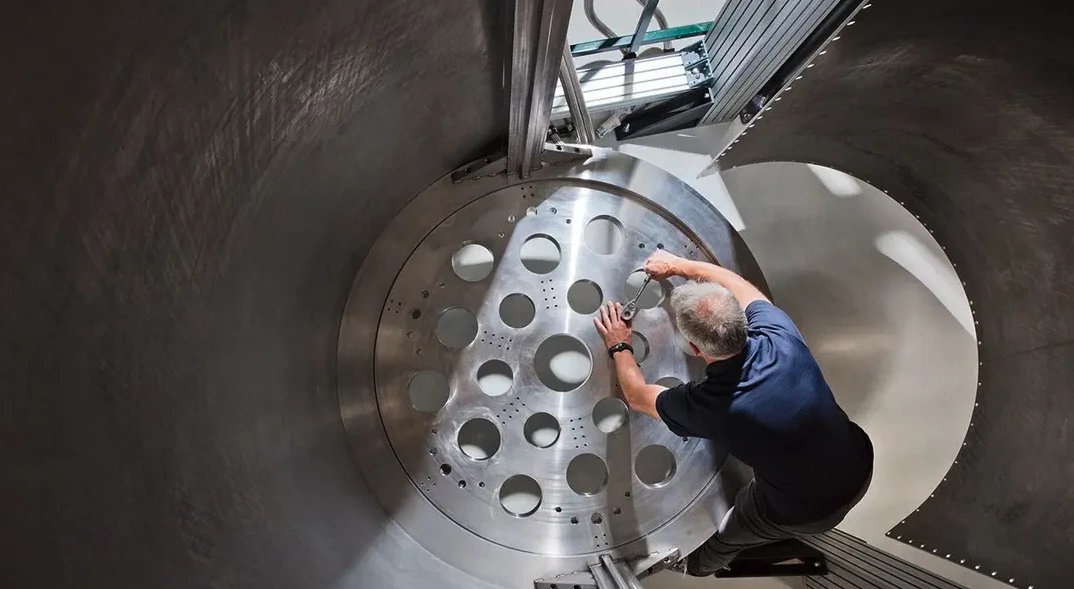Quantum computing requires extremely cold temperatures. To that end, IBM has built and demonstrated a huge “super-fridge” codenamed Project Goldeneye that chills things colder than outer space.
Quantum computers get their incredible speed and power by tapping into the spooky realm of quantum physics. Properties like superposition, where particles can exist in two states at the same time, can allow large amounts of data to be processed simultaneously, while entanglement can effectively “teleport” information.
The problem is, these states are very sensitive to interference from the environment, including heat. As such, quantum experiments and computers usually need to be run and kept at cryogenic temperatures just a fraction of a degree above absolute zero, where atoms have almost no energy at all.
Keeping equipment that cold is no easy feat, which is why IBM has now built a proof-of-concept for a new cooling system. Goldeneye is what’s known as a dilution refrigerator, which use a mixture of helium-3 and helium-4 to cool their contents down to the milli-Kelvin (mK) range, or thousandths of a degree above absolute zero.
But Goldeneye has been designed to iron out a few kinks in existing dilution fridges. For starters, it contains an experimental volume of 1.7 m3 (60 cu ft), which is two to three times bigger than previous ones. It’s modular, and has a clamshell design that allows the outer vacuum chamber to open sideways so scientists can access the internal hardware easily.

It can be fitted with different refrigerator units that cool to different temperatures, and its 6.7-ton weight helps dampen vibrations that can interfere with the quantum equipment. Importantly, it only takes up one-10th the space of existing dilution fridges of equivalent power. All this simplification means it could be operated by much smaller teams of scientists too.
In tests, Goldeneye was able to cool down to just 25 mK, which is 1,000 times colder than the average temperature of space. When the IBM team placed a quantum chip inside and cooled it, they were able to achieve a coherence time – how long the qubits retain their information – of around 450 microseconds. That might not sound like much, but it’s on par with existing dilution fridges.
As promising as Goldeneye sounds, IBM says that it probably won’t be used in its current form to cool quantum computers. But the concepts tested will be used to inform the next generations of cooling systems.
Source: IBM




